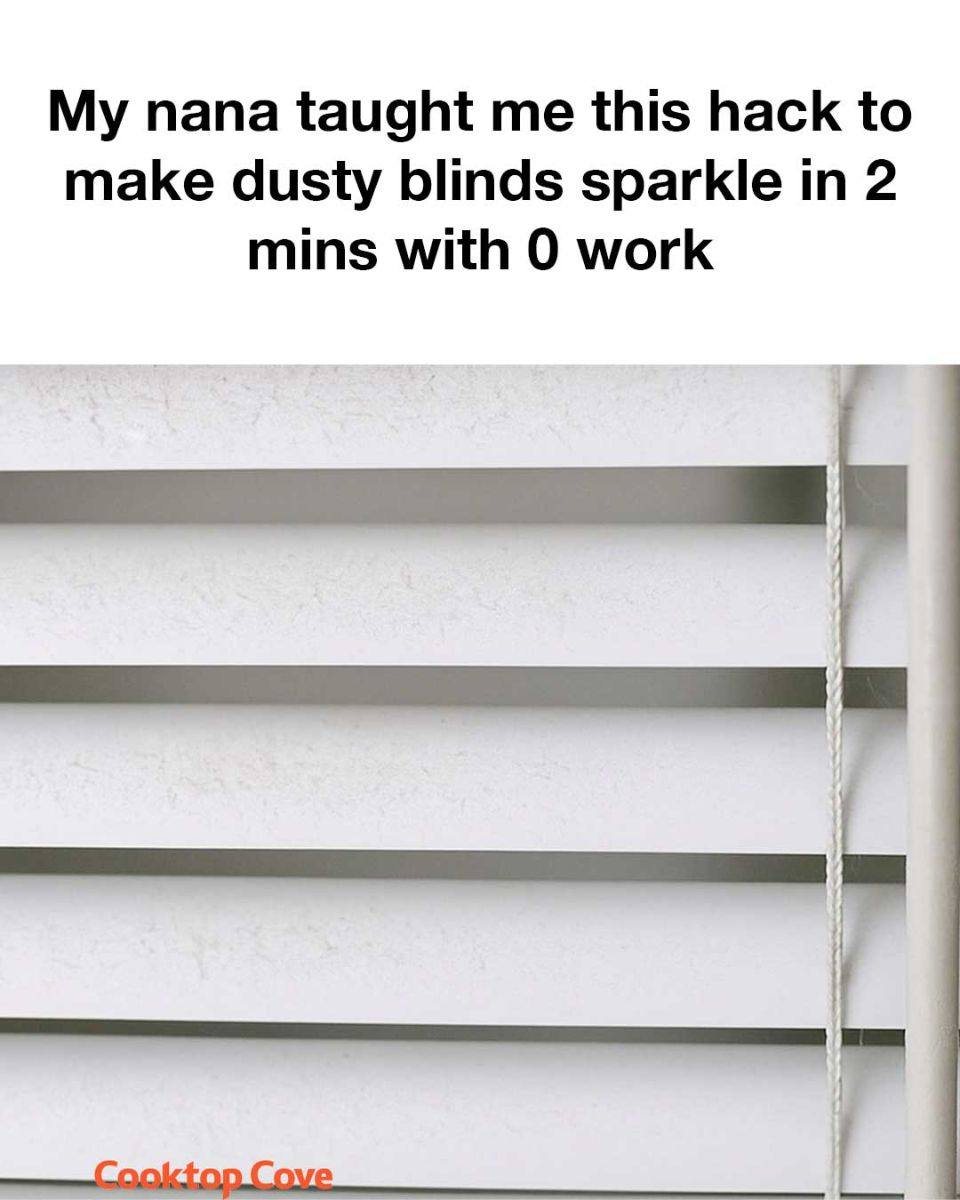For this hack, you’ll need the following materials: a pair of old socks or microfiber cloths, a spray bottle, white vinegar, and water. You might already have these items on hand, which makes this method both cost-effective and convenient.
Mix equal parts water and white vinegar in the spray bottle. The vinegar acts as a natural disinfectant and helps to break down the dust particles, while the water dilutes the solution to prevent any damage to your blinds. The socks or microfiber cloths will be used to wipe down the blinds, trapping the loosened dust and leaving your blinds sparkling clean.
4. Step-by-Step Guide to Clean Blinds Effortlessly
Begin by putting on a pair of old socks or taking a microfiber cloth, one on each hand. This will allow you to clean both sides of the blind slats at the same time.
Next, spray the vinegar and water solution onto the cloths or socks, ensuring they are damp but not soaking wet. This will help to lift the dust without leaving streaks.
Starting from the top of the blinds, grip each slat between your fingers and slide your hands across to wipe away the dust. The solution will break down the dust particles, making them easy to remove.
Continue this process until all the slats have been cleaned. If the cloths become too dirty, rinse them out and reapply the solution as needed.
5. Why This Hack Is a Game Changer
This hack is revolutionary because it simplifies the cleaning process and requires minimal effort. Traditional methods often involve taking the blinds down or using specialized equipment, which can be time-consuming and cumbersome.
By using items you already have at home, this method is both economical and environmentally friendly. The vinegar not only cleans but also disinfects, making it a healthier alternative to chemical-laden products. Plus, the entire process takes less than two minutes, saving you precious time that can be better spent elsewhere.
6. Common Mistakes to Avoid
One common mistake is using too much liquid on the blinds. Excess moisture can cause water spots or even damage the material, especially if they are made of wood. Always ensure your cloths are damp, not soaking.
Another pitfall is neglecting to rinse the cloths when they become too dirty. Using dirty cloths can simply spread the dust around rather than removing it. Keep an eye on the cleanliness of your cloths and rinse them as necessary.
7. Expert Tips for Maximizing Results

